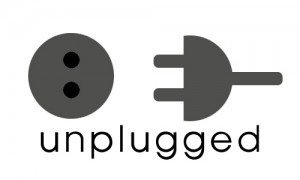 We live in a so-called plugged-in era. With constant access to instant information, “google” is now a verb, thoughts are shared in 140 characters or less, news is old within twenty-four hours, and friends are requested with the click of a button. A world wide web is available at our fingertips, and because of it, facts and figures travel across the globe in an instant, and a massive network of people, both known and unknown, seem to be linked in ways previously deemed unimaginable. With each passing day the ways in which humans communicate and relate is more diverse, and one can expect far more alterations in the years to come. As correctly predicted by David Manasian in The Economist (January, 2003), the Internet and its related technologies have changed almost every aspect of our lives:
We live in a so-called plugged-in era. With constant access to instant information, “google” is now a verb, thoughts are shared in 140 characters or less, news is old within twenty-four hours, and friends are requested with the click of a button. A world wide web is available at our fingertips, and because of it, facts and figures travel across the globe in an instant, and a massive network of people, both known and unknown, seem to be linked in ways previously deemed unimaginable. With each passing day the ways in which humans communicate and relate is more diverse, and one can expect far more alterations in the years to come. As correctly predicted by David Manasian in The Economist (January, 2003), the Internet and its related technologies have changed almost every aspect of our lives:
Earlier technologies, from printing to the telegraph… have wrought big changes over time. But the social changes over the coming decades are likely to be much more extensive, and to happen much faster, than any in the past, because the [Internet-related] technologies driving them are continuing to develop at breakneck pace. More importantly, they look as if together they will be as pervasive and ubiquitous as electricity.
At the onset of the 21st century about 360 million people had access to the Internet, the number increased to 600 million by 2003, and today about 3.5 billion (one out of every three humans on the planet) are connected to the world wide wide. And so, in ways similar to the reaction of previous developments (telegraph, telephone, radio, motion pictures, and television), we are forced to wonder whether or not the latest technological movements should be celebrated, mourned, embraced, resisted, or perhaps all of the above. In other words, as an increasing number of global citizens possess online capacity, we are drawn to question the costs and benefits of such expanded levels of connectivity.
On the one hand, the online experience has provided countless benefits for human life, and such advances should be recognized and celebrated. For example, families separated by physical distance can see and hear one another, children in remote villages are offered access to the world around them, and physicians from renowned institutions can interact with a multitude of patients once deemed unreachable. In addition, social media has allowed for political revolution in oppressive regimes, access to education has expanded through online learning, and business procedures are often more efficient through online banking, web-seminars, training sessions, and daily acts of telecommunication.
In addition to the perceived benefits of the Internet, we also recognize the various ways it seems to harm and hinder our global community. For example, as predicted by Sproull and Kielser in Management Science (1985), the online experience provides “impoverished communication” through the restriction of social cues, which in turn has an individualizing effect and produces behavior that is more self-centered and less socially regulated than usual. In other words, due to the unending data distribution that the Internet provides, our relationships and experiences seem to be increasingly superficial, momentary, and even synthetic. As a result, instead of dwelling, reflecting, and pondering, we skim over, touch gently, and speed past. In trying to be everywhere we end up being nowhere, and while attempting to connect with countess people in various places simultaneously, we are thus disconnected from who we truly are and detached from the wonders and realities of life that matter most.
In order observe, examine, and act in response to the increasingly complex plugged-in/unplugged nature of our lives, from November 8-10, Gustavus Adolphus College will host “Gustavus Unplugged”, which features a “No Phone Day” (with a “surrender your phone” option) on November 8th, as well as a multi-day Retreat in Christ Chapel (November 8-10), to include Yoga, Taize Prayer, Silence, and a Worship Service of Holy Communion. Those interested may partake in some or all of the events offered (depending upon participant availability), but are encouraged to take part in as much as possible. A detailed schedule with additional information can be found on posters throughout campus, or at: http://www.facebook.com/gustavusunplugged and #gustavusunplugged.
Altogether, through an intentional period of connection and reflection, Gustavus Unplugged seeks to promote an authentic way of being present in our world, so we may continue to grow as people seeking life in its fullness through the various values we hope to embody. As people gathered for a period of calculated contemplation, we will take a fresh look at the technologies that often fill our lives and examine that which we have given the most value. In doing so, we seek to be challenged, but also comforted, and most of all, collectively created into something new as a truly connected community. We look forward to your participation in Gustavus Unplugged, so we may promote lives that are more fully plugged-in.
Gustavus Unplugged was initiated by Pa Moua ‘14, Kelli Remboldt ‘15, and Brian Simons ‘14 of the “Media/Culture/Power” course in Communication Studies. Additional sponsors include: The Office of the Chaplains, Peer Assistants, the Wellbeing Initiative, and the Dean of Students Office. Those with additional questions may contact the Office of the Chaplains at X7447.